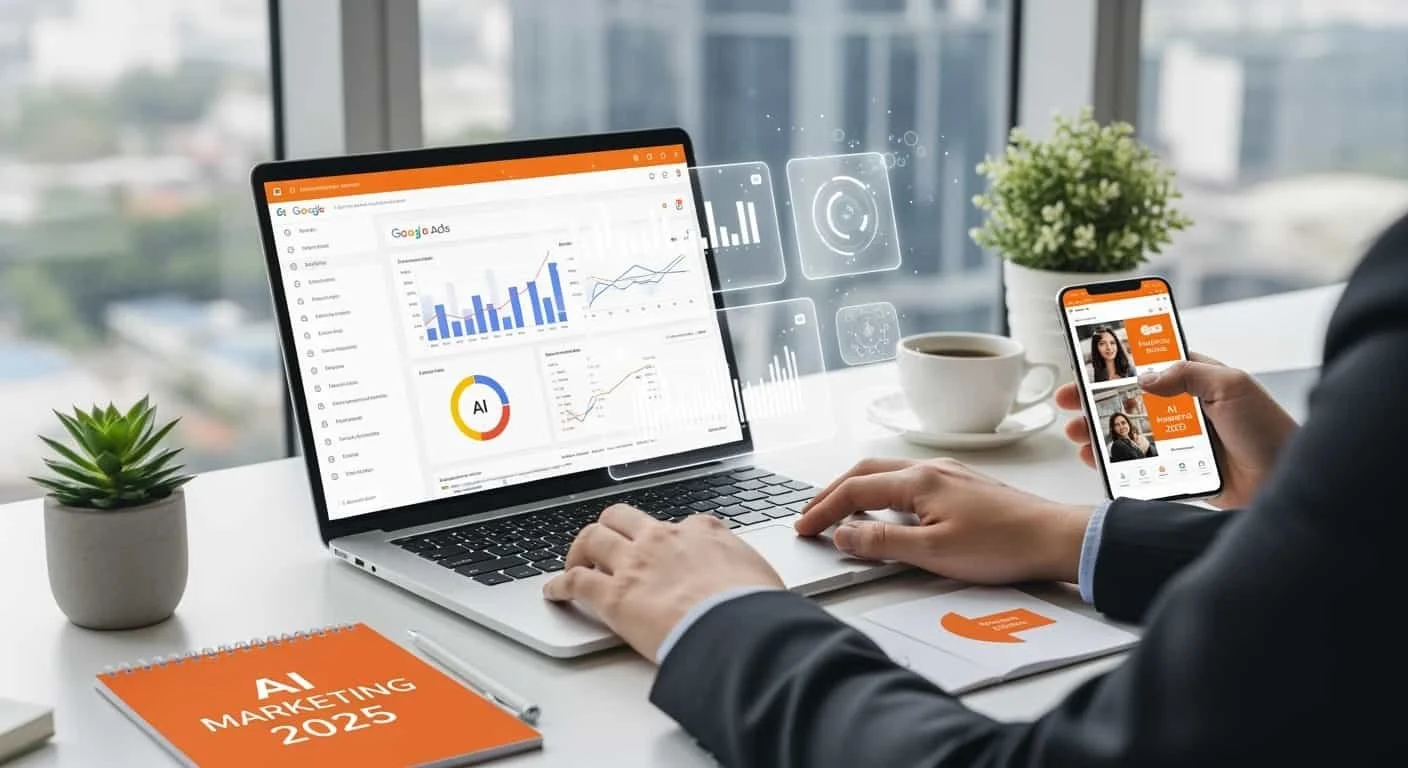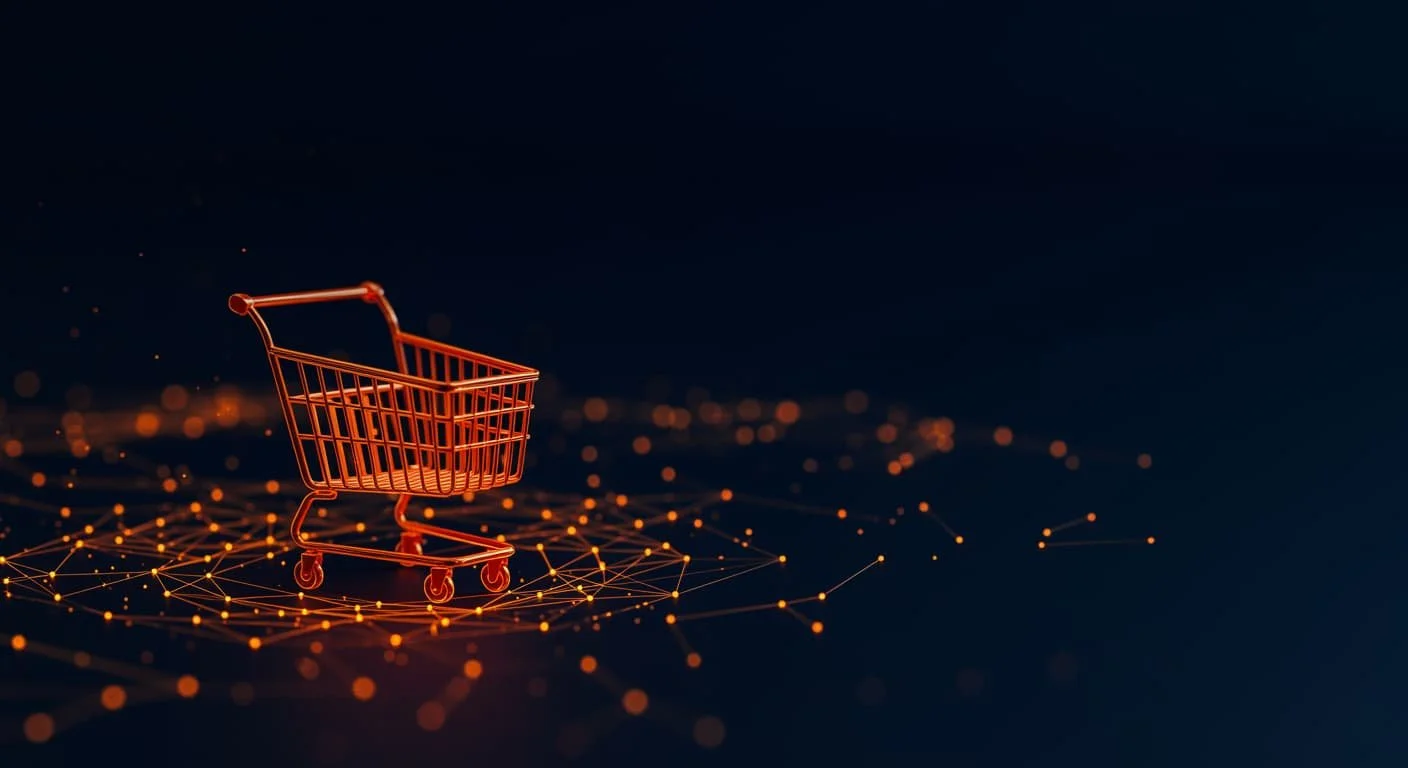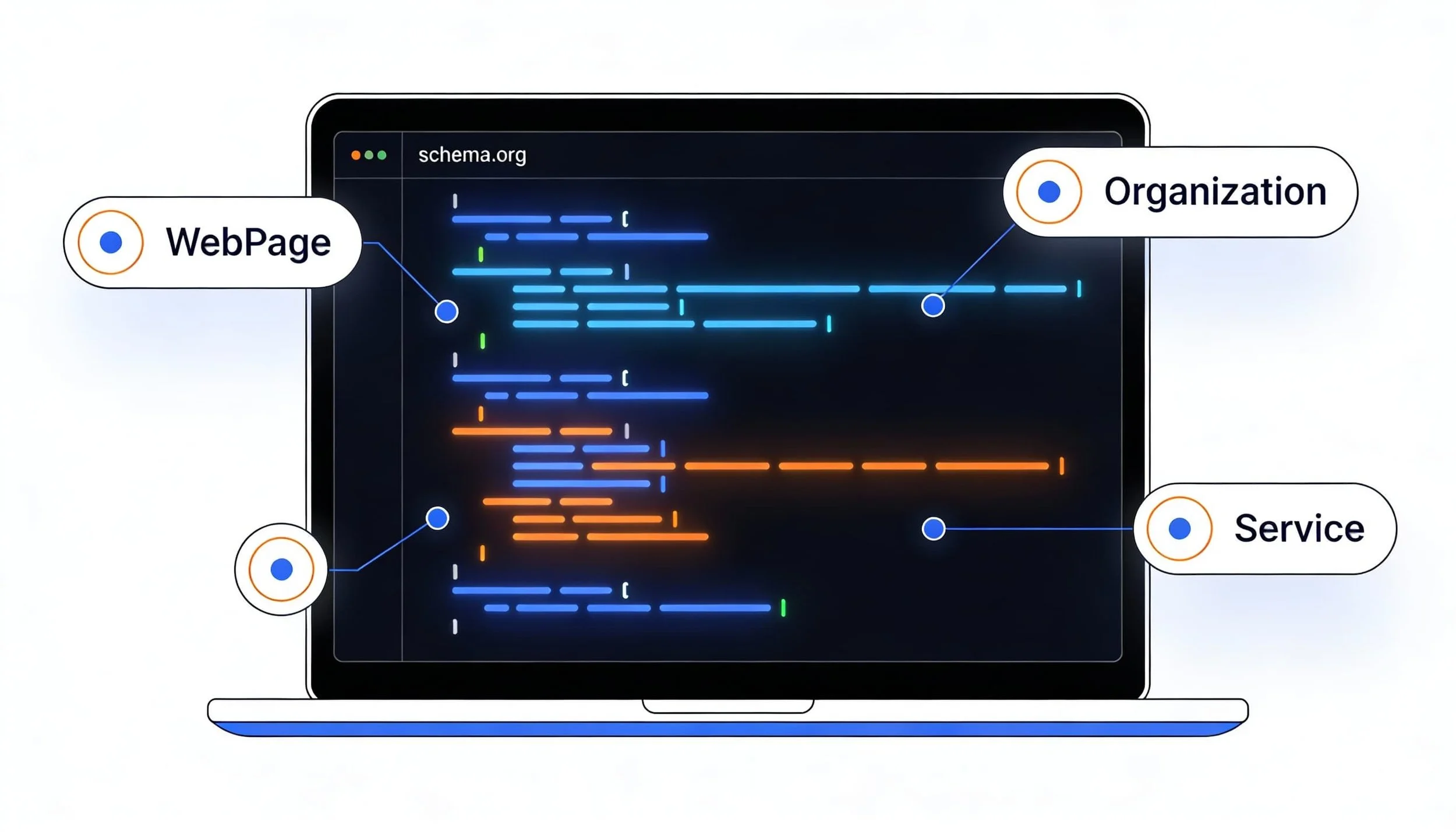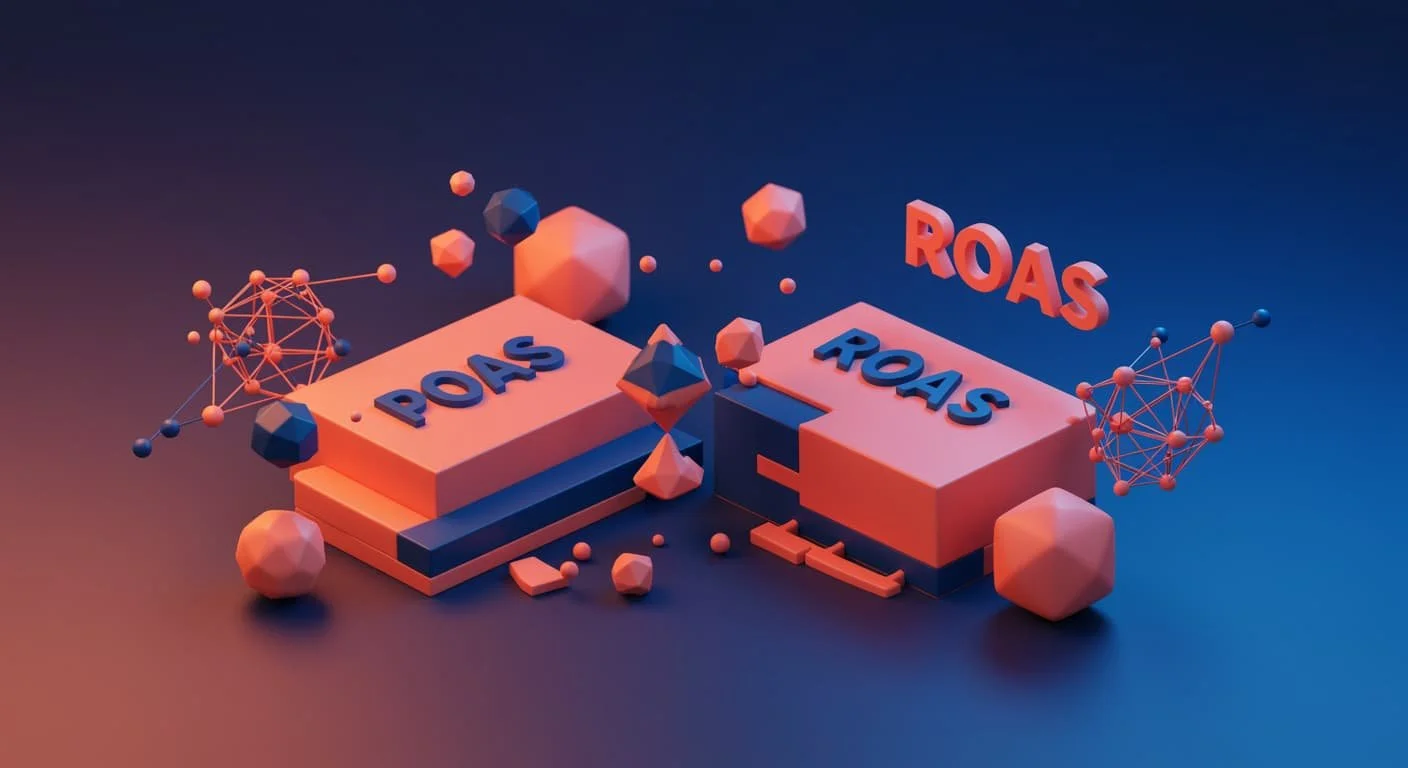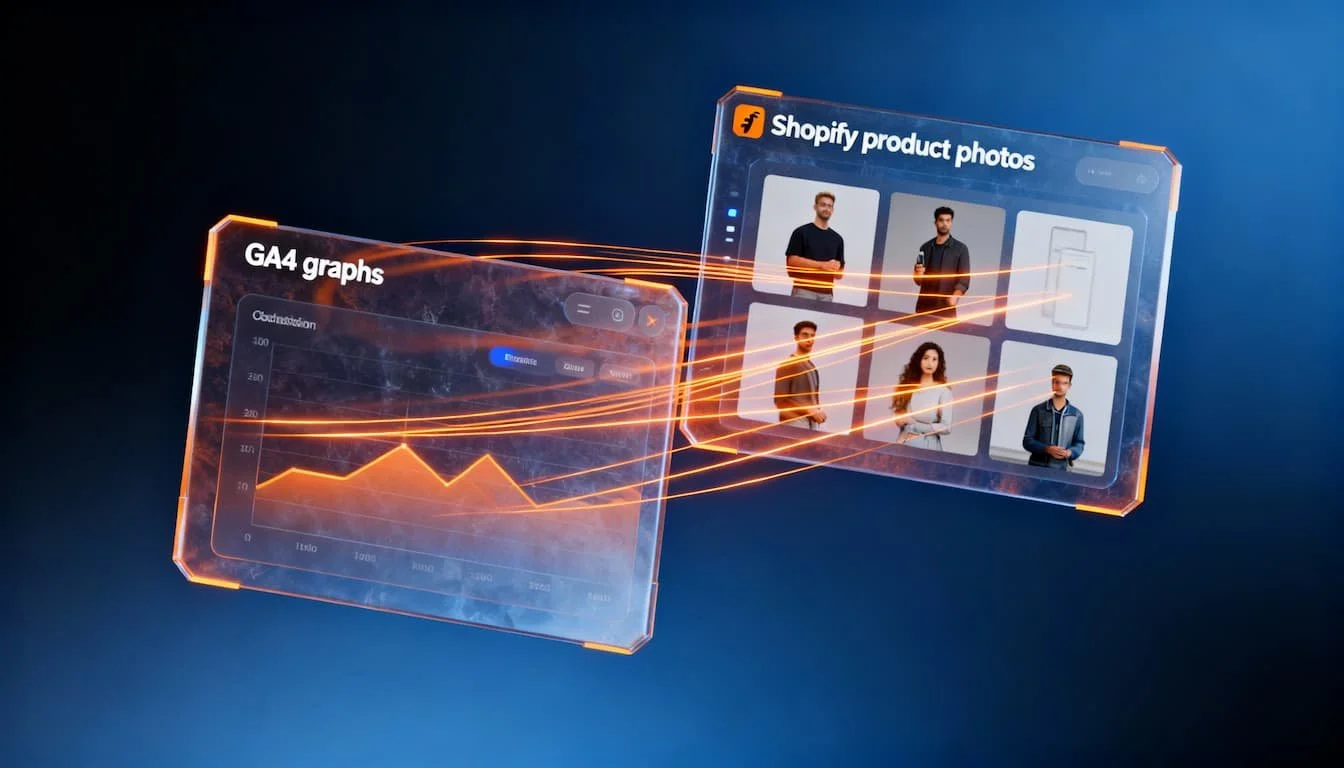Google Ads Strategy for Profitable SME Growth
- Machine learning: ML algorithms analyze data for better targeting, smart bidding strategies, and ROI optimization
- Long-tail strategy: Specific 3+ word keywords have lower CPC and higher conversion rates
- Technical optimization: Landing pages, speed, mobile-friendliness, and Quality Score are crucial
- Ad extensions: Significantly increase visibility and CTR with sitelinks, location, and price extensions
- Continuous improvement: A/B testing, experimentation, and adaptability are key to success
The world of Google Ads has undergone an unprecedented transformation in 2026. With the introduction of AI Mode, extensive AI Overviews, and revolutionary bidding strategies, the digital advertising world stands on the cusp of a new era. For Dutch and Belgian companies, this presents both opportunities and challenges to maximize their online visibility.
While traditional optimization focused on manual adjustments of keywords and bids, modern Google Ads optimization revolves around the smart deployment of AI-driven tools. Performance Max campaigns dominate the landscape, while Smart Bidding Exploration opens new possibilities for advertisers willing to step out of their comfort zone.
This transformation affects all aspects of online marketing, from SEO strategies to e-commerce optimization.
The new reality of Google Ads in 2026
AI as a foundation, not a feature
"AI is no longer something that helps with campaigns; it's what drives successful campaigns," states Vidhya Srinivasan, VP Ads at Google. This shift is fundamental to how we view ad optimization.
The introduction of AI Mode has completely redefined the search experience. Users searching via AI Mode spend 2 to 3 times more time on websites they discover through ads. This offers significant opportunities for performance marketing strategies, especially in combination with AI-driven content creation.
“Machine learning is not only essential for bridging data gaps but also elevates data interpretation to a new level. With this, GA4 can offer advanced insights by detecting anomalies, generating predictions, and spotting trends.”
Performance Max evolution: from black box to transparency
One of the biggest frustrations for advertisers was the lack of insight into Performance Max campaigns. Google has listened and now offers channel-specific reporting within Performance Max. This finally means visibility into how ads perform across Search, Display, YouTube, and Discovery.
The new Power Pack replaces the Power Pair and consists of:
AI Max for Search campaigns
Performance Max (with improved reporting)
Demand Gen campaigns
This combination offers a more holistic approach to automated advertising, where each component serves specific goals within the larger ecosystem. For businesses looking to outsource digital expertise, understanding these new campaign structures is essential.
Smart Bidding Exploration: the biggest bidding update in a decade
Google has announced that Smart Bidding Exploration is the biggest update to bidding strategies in ten years. This feature explores less obvious but potentially high-value search queries, automatically adjusting bids.
“As machine learning takes over more of Google’s algorithm, the fundamentals of rankings change. Bounce, clicks, dwell time - these are all qualities in the machine learning process, and the algorithm tries to emulate good SERP experiences.”
Practical implementation of Smart Bidding
The new bidding strategy dynamically adjusts bids, sometimes even above your set ROAS targets, to capture more valuable traffic. This requires a fundamentally different mindset, as described in our performance marketing guide:
Trust machine learning: Let algorithms discover patterns that humans miss
Focus on volume and value: Not just on cost per click
Monitor performance holistically: Look at total account performance, not individual campaigns
This approach aligns perfectly with modern advertising strategies within the marketing funnel.
First-party data: the new gold standard
With the phasing out of third-party cookies, first-party data is becoming more crucial than ever. Companies that smartly integrate their customer data into Google Ads see significant improvements in targeting and performance. This is especially relevant for AI automation strategies that depend on quality data.
Implementation of Enhanced Conversions
Enhanced Conversions use hashed first-party data to improve conversion tracking. According to recent benchmarks, advertisers who implement Enhanced Conversions see an average of 11% more recorded conversions.
Required implementations for 2026:
Server-side tracking for more accurate measurements
Google Consent Mode v2 for privacy compliance
Offline conversion tracking for complete customer journey insight
Integration with CRM systems for improved audience targeting
For an in-depth analysis of your current setup, consider an AI audit for your business to identify optimization opportunities.
Video-first approach: from text to moving images
The focus on video ads has exploded in 2026. Google has introduced new tools that make it easier to create video content:
Veo and Imagen integration
Google's advanced AI models Veo (video) and Imagen (images) are now directly available in Google Ads. This means advertisers can:
Create image-to-video conversions from product photos
Create AI-generated video ads with simple text prompts
Add interactive video elements to YouTube Shorts Ads
These developments align seamlessly with trends in AI marketing and the broader application of AI in online marketing.
“At the Google Marketing Live event, a notable update was the conversational experience in Google Ads. As a digital marketing expert, I believe this could revolutionize how we engage customers and improve productivity.”
Merchant Center revolution for e-commerce
For Shopify webshops and other e-commerce platforms, Google offers significant updates. These integrate perfectly with Shopify marketing strategies and conversion optimization for webshops.
A/B testing in Merchant Center
Companies can now directly test different product titles, images, and descriptions within Merchant Center. This offers a direct way to optimize product presentations without external tools.
New possibilities:
Product Studio: AI-driven product photo creation
Lifestyle images: Context-rich product presentations
Brand Profiles: Consistent brand presentation across all touchpoints
Video assets: Moving product demonstrations directly in search results
For businesses looking to set up their webshop or migrate to Shopify, these tools are indispensable.
Practical optimization strategies for 2026
1. Embrace the AI-driven workflow
Traditional SEO strategies must be adapted for AI search experiences. Focus on creating "helpful, reliable, people-first content" that can appear in both traditional search results and AI Overviews. This aligns with the evolution of GEO (Generative Engine Optimization).
Action points:
Optimize website content for AI Mode discovery
Implement structured data for better AI understanding
Focus on long-tail keywords that support conversational search
For more insight into these developments, read our articles on voice search optimization and zero-click SEO.
2. Data-driven decision-making
With gtag, websites receive 11% more signals compared to traditional tracking. The upgrade to gtag is not only recommended but essential for accurate performance measurements.
Implementation checklist:
Migrate to gtag for improved signal collection
Implement Enhanced Conversions for better attribution
Integrate offline conversion data for complete customer journey insight
This approach is extensively covered in our digital marketing analysis methodology.
3. Automation with control
The new generation of Google Ads requires a balance between automation and human oversight. The introduction of Google Ads Expert and Google Analytics Expert as AI agents offers support, but strategic decisions remain within the human domain. For teams looking to undergo AI training, this is a crucial component of modern marketing competencies.
Advanced targeting in the privacy era
Audience intelligence without cookies
Modern targeting requires creativity within privacy limitations. Successful advertisers use:
In-market audiences: Users actively searching for similar products
Custom intent audiences: Based on specific behavioral patterns
Lookalike audiences: Derived from first-party customer data
“As SEO professionals competing in a machine learning era, we must focus on creating co-occurrences between our brands, products, and services and specific topics and key phrases, so that AI responses are more likely to surface them in replies.”
Remarketing renaissance
Remarketing strategies are becoming more sophisticated with AI support. Dynamic remarketing combines first-party data with machine learning to display personalized ads at different stages of the customer journey. This is particularly effective when combined with CRO techniques and lead generation strategies.
Measurement revolution: from backwards to forwards
Google is shifting from looking back to looking forward. The new measurement methods focus on predictive insights instead of historical performance.
Incrementality testing for everyone
The minimum spend for incrementality testing has dropped from $100,000 to $5,000, making advanced measurements accessible to small and medium-sized businesses.
Benefits of incrementality testing:
Measure the actual impact of ads
Optimize budget allocation across channels
Identify audience overlap and cannibalization
Industry benchmarks 2026
According to WordStream's analysis of 16,446 campaigns between April 2024 and March 2026:
Average performance by sector:
| Sector | Average CTR | Average CPC | Conversion rate |
|---|---|---|---|
| E-commerce | 3.17% | €1.16 | 3.75% |
| Legal | 4.81% | €6.75 | 3.84% |
| Real Estate | 3.71% | €2.37 | 2.47% |
| Technology | 2.09% | €3.80 | 2.72% |
Source: WordStream Google Ads Benchmarks 2025
These figures show that, despite rising costs, conversion rates have improved in most sectors thanks to smarter targeting and AI optimization.
Roadmap for Google Ads success in 2026
Short term (Q4 2025)
Implement Enhanced Conversions for all key conversion points
Test Performance Max with new reporting capabilities
Experiment with AI-generated ads for different audience segments
Optimize for AI Mode by adjusting content and landing pages
For detailed implementation, refer to our Google Ads vs Facebook Ads comparison and guide to outsourcing online advertising.
Medium term (2026)
Integrate video-first strategies across all campaign types
Develop first-party data ecosystems for improved targeting
Implement cross-channel attribution for holistic performance measurement
Test new AI agents for automated campaign management
These developments align with trends in e-commerce in Belgium and sustainable e-commerce strategies.
Long term (2027+)
Prepare for conversational commerce via AI platforms
Develop omnichannel customer experiences that support AI-driven discovery
Invest in proprietary AI tools for competitive advantage
The human factor in AI-driven advertising
Despite the AI revolution, human creativity and strategic thinking remain essential. Successful advertisers in 2026 will be those who view AI as an enhancer of human capabilities, not a replacement.
"There is a balance between automation and human creativity. If we give up the latter, what does that say about all of us?" WordStream Research Team
Competencies for the Google Ads professional of 2026
AI literacy: Understanding how machine learning works and where human input remains crucial
Data storytelling: Translating AI insights into actionable business strategies
Cross-platform thinking: Integrating Google Ads into broader marketing ecosystems
Privacy-first strategies: Navigating regulations while maximizing performance
Conclusion: the future is now
Google Ads optimization in 2026 is no longer about perfect keywords or meticulous budget management. It's about smartly leveraging AI-driven tools while retaining human creativity and strategic insight.
Companies that invest now in first-party data, AI-enhanced creative workflows, and cross-platform measurement position themselves for long-term success. Organizations that cling to traditional methods will increasingly lose competitive advantage.
The revolution in Google Ads is not something that is coming – it is already here. The question is not whether you will participate, but how quickly you embrace the transformation and turn it into your competitive advantage.
Ready to take the next step? Discover how ClickForest elevates your Google Ads performance to the next level with AI-driven strategies and data-driven optimization.

🚀 More leads, higher conversion, better ROI
This article provided you with insights. Now it's time for action. Whether you want to build a profitable webshop, generate more revenue from performance marketing or SEO, or grow with AI marketing – we provide concrete support to help you move forward.
💬 Discuss your challenge directly with Frederiek: Schedule a free strategy call or send us a message
📧 Prefer to email? Send your question to frederiek@clickforest.com or call +32 473 84 66 27
Strategy without action remains theory. Let's take your next step together.
Frequently Asked Questions about Google Ads optimizations
-
Performance Max operates across all Google platforms, while AI Max for Search specifically focuses on search campaigns with AI-enhanced keyword expansion based on website content.
-
Create helpful, people-first content that offers educational value. Optimize for conversational queries and implement structured data for better AI comprehension.
-
Yes, but the focus is shifting towards strategic input, creative direction, and audience insights. Technical optimizations are becoming increasingly automated.
-
Most AI features are built into existing campaign types without additional cost. However, increased competition can raise overall advertising costs.
-
Use incrementality testing, focus on Customer Lifetime Value instead of immediate ROAS, and implement cross-channel attribution for complete impact measurement.
-
Data analysis, AI tool management, creative direction within AI constraints, privacy-compliant data handling, and strategic campaign planning.
-
AI-generated content can be tested and rotated more frequently. Best practice involves weekly performance reviews with monthly creative refreshes.
-
Google rolls out updates gradually. Existing campaigns will continue to function, but performance can improve with the adoption of new features.
-
Yes, AI makes small budgets more efficient through better targeting and bid optimization. The minimum for advanced features has often decreased by 2025.
-
Use brand guidelines in AI tools, implement approval workflows for generated content, and maintain human oversight for strategic decisions and brand-sensitive content.
Sources and references
Google Ads trends and innovations
Search Engine Journal: “Google Marketing Live 2025: Here’s everything that was announced” – https://www.searchenginejournal.com/google-marketing-live-2025/548096/
Think with Google: “The future of AI-powered Search marketing” – https://www.thinkwithgoogle.com/intl/en-emea/marketing-strategies/search/ai-powered-search-marketing/
AI, automation and measurement
WordStream by LocaliQ: “Google Ads Benchmarks 2025: Competitive data & insights for every industry” – https://www.wordstream.com/blog/2025-google-ads-benchmarks
Search Engine Journal: “What Are Good Google Ads Benchmarks in 2025? [Study]” – https://www.searchenginejournal.com/what-is-a-good-ctr-for-google-ads/492785/
StoreGrowers: “27 Google Ads Benchmarks (2025)” – https://www.storegrowers.com/google-ads-benchmarks/
AI Mode, AI Max and first‑party data
MeetRise: “Google Marketing Live 2025: Future of Search, Ads & AI” – https://meetrise.com/insights/google-marketing-live-2025-takeaways

